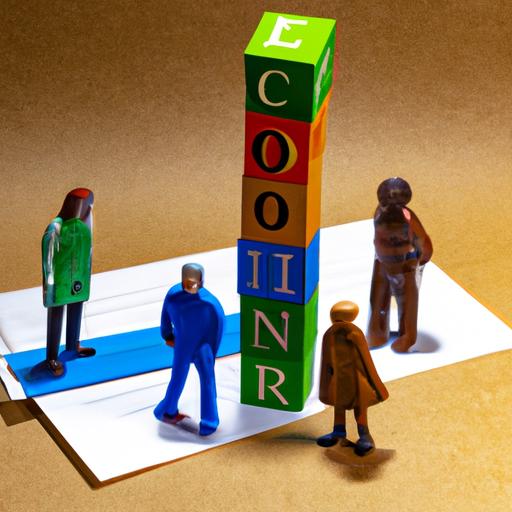Introduction
In today’s fast-paced world, we often find ourselves engrossed in our digital lives, spending more time scrolling through social media feeds than engaging with others. But have you ever wondered how this lack of socializing affects your mental health? In this article, we’ll explore the profound impact that socializing has on our well-being and delve into the connection between social interactions and mental health.
Definition of Socializing
Socializing refers to the act of engaging in social activities and interactions with others. It involves building and maintaining relationships, participating in group activities, and connecting with people on a personal and emotional level. From casual conversations with friends to attending social events, socializing encompasses a wide range of human interactions.
Importance of Mental Health
Before we delve deeper, let’s understand the significance of mental health in our lives. Mental health encompasses our emotional, psychological, and social well-being. It affects how we think, feel, and act, shaping our ability to cope with stress, build relationships, and navigate through life’s challenges. A healthy mental state is crucial for overall well-being and happiness.
Connection between Socializing and Mental Health
Now, let’s explore the intriguing link between socializing and mental health. Humans are social creatures by nature, and social connections play a vital role in our lives. Engaging in social interactions and nurturing relationships is not only essential for our emotional fulfillment but also has a profound impact on our mental well-being.
Studies have shown that socializing offers a myriad of benefits for mental health. It provides emotional support, allowing us to share our thoughts and feelings with others, thereby easing the burden of stress and promoting a sense of belonging. Regular social interactions can also boost self-esteem, as positive feedback and validation from friends and loved ones contribute to a positive self-image.
On the other hand, a lack of socializing can have detrimental effects on mental health. Feelings of loneliness and isolation can creep in, increasing the risk of developing mental health issues such as depression and anxiety. Without the support and companionship that socializing brings, individuals may find it challenging to cope with stress and face life’s challenges.
In the following sections, we’ll dive deeper into the impact of socializing on mental health and explore strategies to improve mental well-being through social interactions. So, let’s embark on this journey together and discover how socializing affects our mental health.
Understanding Mental Health
Definition and Factors Influencing Mental Health
To truly comprehend the impact of socializing on mental health, it is essential to have a clear understanding of what mental health entails. Mental health encompasses our emotional, psychological, and social well-being, shaping how we think, feel, and behave. It is influenced by various factors, including genetics, life experiences, and the environment we live in.
Common Mental Health Issues
Mental health issues can manifest in various forms, affecting individuals of all ages and backgrounds. Some of the most prevalent mental health conditions include depression, anxiety disorders, bipolar disorder, and schizophrenia. These conditions can significantly impact an individual’s thoughts, emotions, and ability to function in daily life.
Importance of Maintaining Good Mental Health
Maintaining good mental health is crucial for overall well-being and quality of life. Just as we prioritize our physical health, it is equally important to prioritize our mental well-being. When our mental health is optimal, we are better equipped to cope with stress, build healthy relationships, and achieve our goals.
Engaging in socializing plays a vital role in maintaining good mental health. It allows us to connect with others, share our experiences, and seek support when needed. By engaging in social interactions, we stimulate our minds, boost our mood, and enhance our overall cognitive function.
In the next section, we will explore the impact of socializing on mental health in greater detail. We will uncover the benefits of social interactions and the potential consequences of lacking social connections. So, let’s delve deeper into how socializing affects our mental well-being.
The Impact of Socializing on Mental Health
When it comes to mental health, socializing plays a crucial role in shaping our overall well-being. Let’s delve into the profound impact that social interactions have on our mental health, exploring both the benefits of socializing and the negative effects of a lack thereof.
Benefits of Socializing on Mental Health
1. Emotional Support
One of the key benefits of socializing is the emotional support it provides. When we engage in meaningful conversations with friends, family, or support groups, we create a safe space to share our thoughts, concerns, and experiences. This emotional connection not only helps us feel heard and understood but also offers a sense of validation and comfort. Having a support system in place can alleviate stress, reduce anxiety, and improve overall mental well-being.
2. Stress Reduction
In our fast-paced lives, stress has become a common companion. However, socializing acts as a powerful antidote to stress. Engaging in social activities and interactions allows us to take a break from our worries and immerse ourselves in the present moment. Whether it’s participating in group activities, going for a walk with friends, or simply engaging in casual conversations, socializing helps reduce stress levels and promotes relaxation.
3. Improved Self-Esteem
Socializing can have a profound impact on our self-esteem. When we connect with others, we receive feedback, support, and validation, which contributes to a positive self-image. Positive social interactions can boost our confidence, help us recognize our strengths, and provide a sense of belonging. By building strong social connections, we cultivate a support system that encourages personal growth and fosters a healthy sense of self-worth.
Negative Effects of Lack of Socializing on Mental Health
1. Increased Risk of Depression and Anxiety
Isolation and a lack of socializing can significantly increase the risk of developing mental health conditions such as depression and anxiety. Without regular social interactions, individuals may experience feelings of sadness, hopelessness, and disconnection. Human connections are vital for our emotional well-being, and when we isolate ourselves, we deprive ourselves of the support and companionship that can help combat these mental health challenges.
2. Feelings of Loneliness and Isolation
Humans are inherently social beings, and a lack of socializing can lead to feelings of loneliness and isolation. Loneliness is not just a fleeting emotion; it can have severe consequences on our mental well-being. Without regular social interactions, we may feel disconnected from others, leading to a sense of emptiness and a negative impact on our overall mental health.
In the next section, we will explore the fascinating relationship between socializing and brain health, shedding light on how social interactions influence cognitive abilities and brain function.
Socializing and Brain Health
Our brains are incredible organs that thrive on stimulation and interaction. In this section, we’ll explore the fascinating connection between socializing and brain health, shedding light on how social interactions directly impact our cognitive abilities, memory, and overall brain well-being.
Impact of Social Interaction on Brain Function
Did you know that socializing can have a profound effect on our brain function? Engaging in social interactions triggers various areas of the brain responsible for processing emotions, interpreting social cues, and building interpersonal connections. These interactions stimulate the release of neurotransmitters, such as oxytocin and dopamine, which play a crucial role in regulating our mood and overall brain function.
Furthermore, socializing activates the prefrontal cortex, the part of the brain responsible for decision-making, problem-solving, and self-control. Regular social interactions challenge our cognitive abilities, keeping our brains sharp and agile. Just like exercising our physical muscles, socializing exercises our brain, enhancing its overall performance and boosting cognitive function.
Role of Socializing in Cognitive Abilities
Maintaining an active social life can have significant benefits for our cognitive abilities. Engaging in conversations, debates, and discussions with others stimulates our critical thinking skills, expands our perspectives, and enhances our ability to articulate our thoughts effectively. These cognitive challenges promote mental agility and cognitive flexibility, allowing us to adapt to new situations and think creatively.
In addition, socializing provides opportunities for learning and acquiring new knowledge. Sharing experiences, exchanging ideas, and engaging in intellectual conversations with a diverse group of individuals can broaden our intellectual horizons and stimulate intellectual curiosity. These mental exercises foster lifelong learning, positively influencing our cognitive abilities and overall brain health.
Effects on Memory and Overall Brain Health
Socializing also plays a vital role in maintaining a healthy memory and overall brain health. Research suggests that regular social interactions can help improve memory retention and recall. Engaging in conversations and social activities that require us to remember names, events, and details exercises our memory muscles, keeping them sharp and resilient.
Moreover, socializing can have a protective effect on our brain health as we age. Studies have shown that individuals with active social lives are at a lower risk of developing cognitive decline and neurodegenerative diseases, such as Alzheimer’s. The social stimulation and cognitive challenges that come with socializing help build cognitive reserves, making our brains more resilient and resistant to cognitive decline.
In the next section, we’ll explore practical strategies to enhance our mental health through socializing. So, let’s continue this journey and discover how we can harness the power of social interactions for our well-being.
Strategies to Improve Mental Health through Socializing
Importance of Diverse Social Connections
When it comes to socializing for mental health, it’s crucial to cultivate diverse social connections. While close friends and family provide a significant support system, expanding our social circle can bring new perspectives and experiences into our lives. Engaging with individuals from different backgrounds, cultures, and interests can broaden our horizons and enhance our understanding of the world around us. By fostering diverse social connections, we create opportunities for personal growth, empathy, and a sense of belonging within a larger community.
Engaging in Face-to-Face Interactions
In the digital age, it’s easy to rely solely on virtual interactions through social media platforms and messaging apps. However, research suggests that face-to-face interactions have a more profound impact on our mental health. Meeting someone in person allows us to pick up on non-verbal cues, connect on a deeper level, and establish stronger bonds. So, make an effort to meet up with friends, organize social gatherings, and engage in meaningful conversations that go beyond the confines of a screen. These face-to-face connections can provide a much-needed boost to our mental well-being.
Participating in Social Activities and Hobbies
One effective way to incorporate socializing into our lives is by participating in social activities and pursuing hobbies that align with our interests. Whether it’s joining a sports team, attending art classes, or volunteering for a cause we care about, engaging in activities with like-minded individuals offers a unique opportunity to connect, bond, and share experiences. By immersing ourselves in activities we enjoy, we not only enhance our mental well-being but also create a space for meaningful social connections to flourish.
Remember, socializing is not just about the number of interactions, but the quality and depth of those connections. So, focus on building diverse connections, engaging in face-to-face interactions, and participating in activities that bring you joy and fulfillment. By incorporating these strategies into your life, you can harness the power of socializing to improve your mental health and create a strong support system that uplifts and strengthens you.
Conclusion
In conclusion, socializing plays a vital role in our mental health and overall well-being. As social creatures, human connections are essential for our emotional fulfillment and happiness. Engaging in social activities and nurturing relationships not only provides us with emotional support but also helps reduce stress, boost self-esteem, and promote a positive self-image.
On the other hand, the absence of socializing can have detrimental effects on mental health. Feelings of loneliness and isolation can lead to an increased risk of developing mental health issues like depression and anxiety. It is crucial to prioritize social interactions and make an effort to maintain diverse social connections.
To improve mental health through socializing, it is important to engage in face-to-face interactions whenever possible. While technology has made it easier to connect with others online, nothing can replace the benefits of in-person communication and genuine human connection. Participating in social activities and hobbies that align with your interests can also provide opportunities for socializing and enhance your mental well-being.
In a world that is becoming increasingly disconnected, we must recognize the importance of socializing for our mental health. By fostering meaningful relationships and engaging in social interactions, we can nurture our mental well-being and build a strong support system.
So, the next time you find yourself caught up in the digital world, take a step back, and prioritize real-life connections. Reach out to friends, join social groups, and participate in activities that allow you to interact with others. Remember, socializing is not just a means of entertainment but a crucial aspect of maintaining good mental health.
Let’s embrace the power of socializing and create a world where mental well-being flourishes through meaningful connections.



